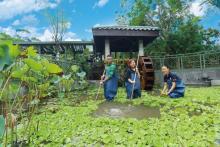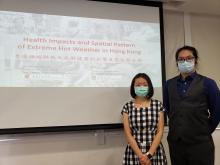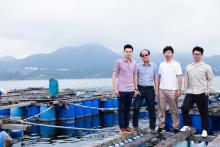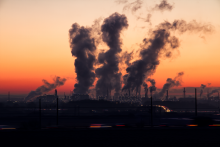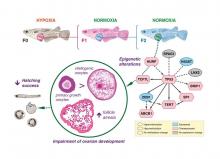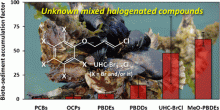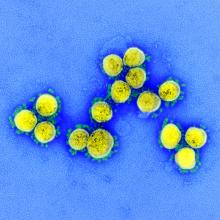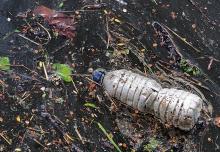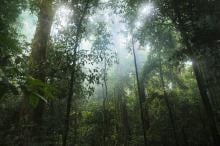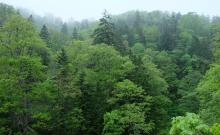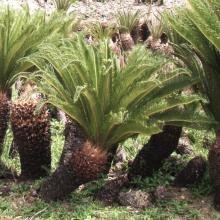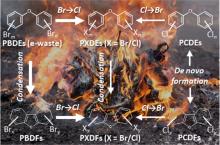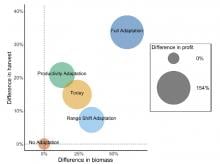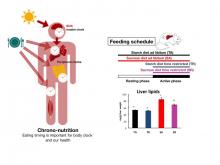Earth Sciences Environmental science
News
24 Sep 2020
Nestled at the base of a scenic mountain range in the northeast part of Hong Kong, the campus of The Education University of Hong Kong (EdUHK) is rich in biodiversity. Members of the University community recorded over 1,270 observations of 380 species of trees, plants, insects, birds, fungi and reptiles in the worldwide City Nature Challenge 2019.
24 Aug 2020
Hong Kong has been experiencing hotter summers and more scorcher days in recent years due to climate change and heat island effect. Amid the increasing number of “hot nights”, it is found that consecutive “hot nights” are more detrimental to human health than “very hot days”, although the actual temperature does not reach the level of daytime, according to a collaborative research conducted by the Institute of Future Cities at The Chinese University of Hong Kong (CUHK), as well as researchers from the University of Hong Kong.
The research also identified that lack of urban greenery and poor air ventilation in a high-density context are factors that lead to more “hot nights” than “hot days” in some areas. The team suggests that better urban planning and building design are long-term mitigation measures.
28 Jul 2020
A decade ago, a fish feed pellet made from food waste was just a concept. Today, although still in its initial stages, it is a patented marketable product with many different benefits.
27 Jul 2020
Large improvements of air quality in China during the COVID-19 lockdown have been widely reported, but new research reveals that the two pollutants most harmful to human health, fine particulate matter (PM2.5) and ozone, were only slightly reduced.
06 Jul 2020
Low oxygen levels in water (hypoxia) pose a significant threat to marine and freshwater ecosystems worldwide, as highlighted in the latest research findings of The Education University of Hong Kong (EdUHK) in an article titled “Low oxygen levels affect reproductive function in female fish – across multiple generations”, featured in Science for Environment Policy (Issue 536). This novel finding shows that hypoxia not only impairs reproduction in female fish (Oryzias melastigma), but the adverse effects can be passed on to their descendants in subsequent generations, posing a long-term threat to the sustainability of natural fish populations around the world.
22 Jun 2020
The first State Key Laboratory of The Education University of Hong Kong (EdUHK) was opened in June 2018, in alignment with the University’s ongoing efforts to promote environmental studies as a discipline complementary to education. As a consortium member of the State Key Laboratory of Marine Pollution (SKLMP), the University’s role is to conduct pioneering research pertaining to solving imminent marine pollution problems that pose a significant threat to our environment and public health.
03 Jun 2020
The present study screened known and unknown organohalogen compounds present in mussel and sediment samples from Hiroshima Bay. The results provided scientific evidence that unknown mixed halogenated compounds are ubiquitous in the coastal environment and possess bioaccumulative potential as high as persistent organic pollutants.
25 May 2020
Wastewater could be used as a surveillance tool to monitor the invasion, spread and eradication of COVID-19 in communities.
28 Feb 2020
A recent study, affiliated with South Korea's Ulsan National Institute of Science and Technology (UNIST) has presenter in-depth study of the interaction mechanism between the lignin nanofilms.
22 Feb 2020
2 Gold, 3 Silver, 5 Bronze, and 2 Participation Awards have been bestowed upon South Korea's Ulsan National Institute of Science and Technology (UNIST) at this year's Samsung Humantech Paper Awards.
21 Feb 2020
South Korea's Ulsan National Institute of Science and Technology (UNIST), in collaboration with NASA in the United States, have successfully analyzed the main patterns of atmospheric circulation affecting the Arctic sea ice.
07 Feb 2020
A study by The Chinese University of Hong Kong (CUHK) found that mangroves and other marine wetlands stored 23% more carbon from the atmosphere than previously estimated, which further established the importance of “Blue Carbon” and its contribution to countering carbon emission. This article has been published in the prestigious scientific journal Nature Communications. (https://www.nature.com/articles/s41467-019-14120-2)
21 Jan 2020
The relationship between body size and climate in lizards and snakes is more complex than originally thought.
11 Dec 2019
Rivers in southeast Asia transport more plastic to the ocean than some rivers in Europe, evidence from a new study in Environmental Research Letters suggests.
10 Dec 2019
IAP outlines a set of measures to protect forests and fight climate change in response to the ongoing global crisis surrounding deforestation and forest burning
05 Sep 2019
Do you have new research to share about anthropology, archeology, paleontology, sociology, climate change or endangered species? You could win the opportunity to highlight your research in Asia Research News 2020.
26 Aug 2019
A recent study, affiliated with South Korea's Ulsan National Institute of Science and Technology (UNIST) has challenged themselves with developing tandem solar cells for the first time, thus received much attention for achieving 21.19% efficiency.
21 Aug 2019
Environmental DNA (eDNA) has successfully proven the presence of invasive crayfish in almost all the small streams around Lake Akan in Japan, suggesting that eDNA analysis is an efficient and highly sensitive method to assess the distribution of aquatic organisms.
31 Jul 2019
The rise in temperature and precipitation levels in summer in northern Japan, has negatively affected the growth of conifers and resulted in their gradual decline, according to a 38-year-long study in which mixed forests of conifers and broad-leaved trees were monitored by a team of researchers from Hokkaido University.
23 Apr 2019
Cycad plant roots release signals into the soil that triggers the transformation of bacteria into its motile form, helping them move to the plant roots and establish a symbiotic partnership.
15 Apr 2019
The composition of mixed brominated/chlorinated dibenzofurans (PXDFs) and diphenyl ethers in soils from an e-waste site in Ghana suggests a formation of PXDFs through condensation of the flame retardant PBDEs and subsequent bromine-to-chlorine exchange. PXDFs were substantial contributors of toxic equivalents among dioxins from e-waste burning.
11 Apr 2019
Evidence of historic marine life present in Alaskan permafrost is helping scientists reconstruct ancient changes in the ice cover over the Arctic Ocean.

09 Apr 2019
Geoengineering experiments underway to protect Australia’s Great Barrier Reef from climate change highlight the need for Australian law to catch up, researchers say.

21 Jan 2019
Two students, affiliated with South Korea's Ulsan National Institute of Science and Technology (UNIST) have been honored with the 2018 Talent Award of Korea.

23 Nov 2018
Signalling the company’s relentless focus in adding investment and human capital to Singapore’s flourishing deep tech ecosystem

29 Oct 2018
Call for Abstracts - Deadline: November 20, 2018

20 Oct 2018
Advancing Low Carbon Cities in Malaysia
29 Aug 2018
Global commercial fish stocks could provide more food and profits in the future, despite warming seas, if adaptive management practices are implemented. Even so, yields for nearly half of the species analyzed are projected to fall below today’s levels.
27 Aug 2018
A study by researchers at Nagoya University and other universities has indicated that feeding rats a high-sucrose diet only at night, when they are active, ameliorates high levels of fat accumulation in the blood and liver, avoiding the associated adverse effects of metabolic syndrome.
20 Aug 2018
Climate change and other external forces are causing rapid marine community shifts in Japan’s coastal ecosystems. Better understanding of species distribution dynamics, as driven by these factors, can improve conservation efforts and climate change management.
Events
Sorry, nothing coming up for this discipline
Researchers
Sorry, nothing coming up for this discipline
Giants in history
Sorry, nothing coming up for this discipline


